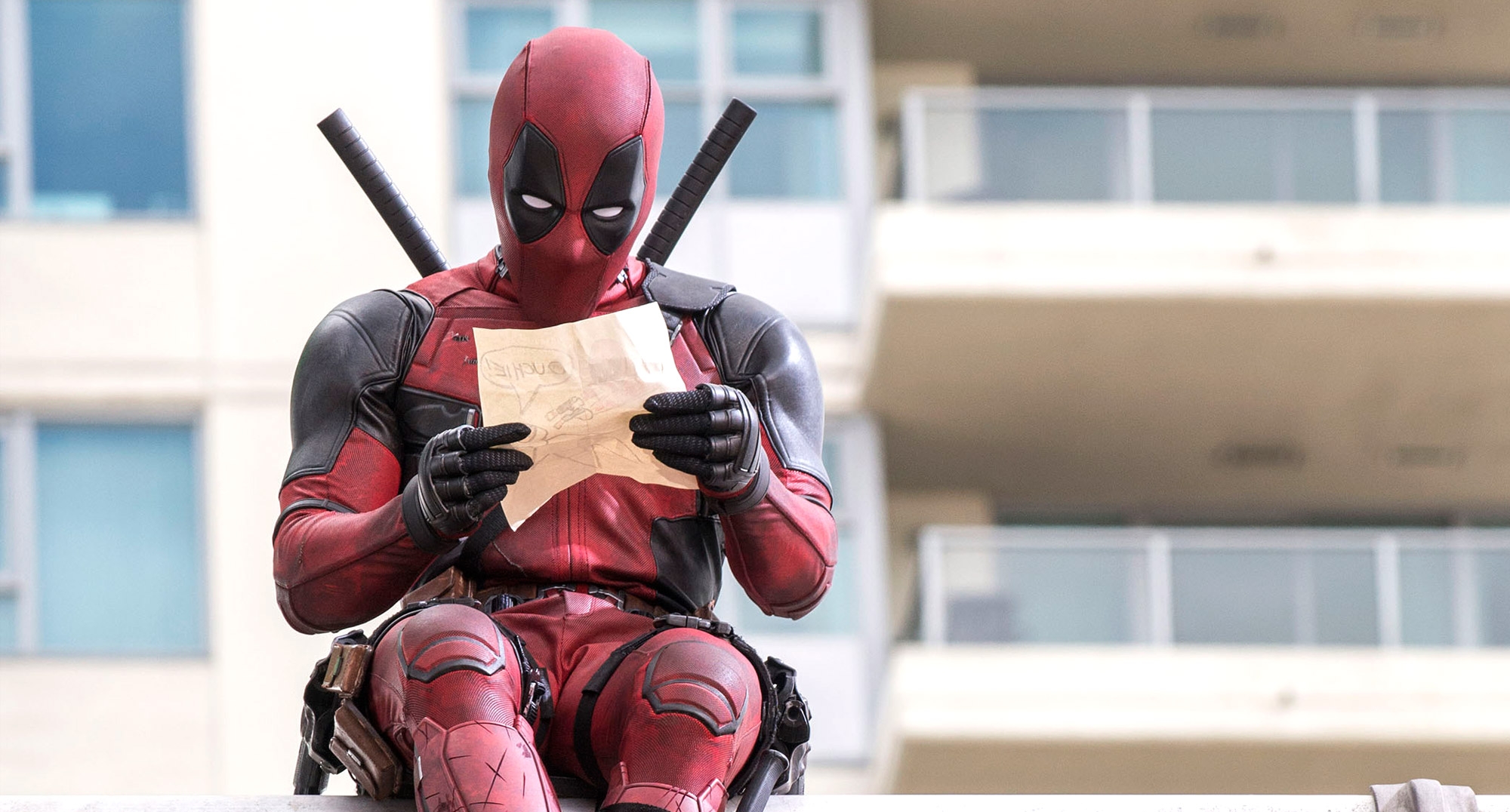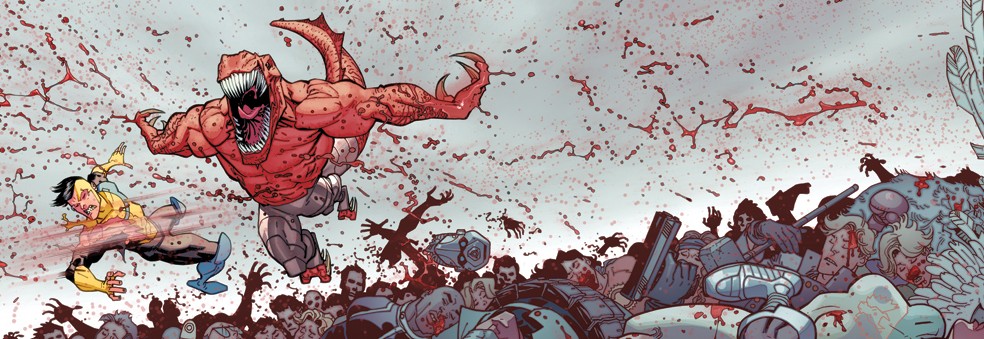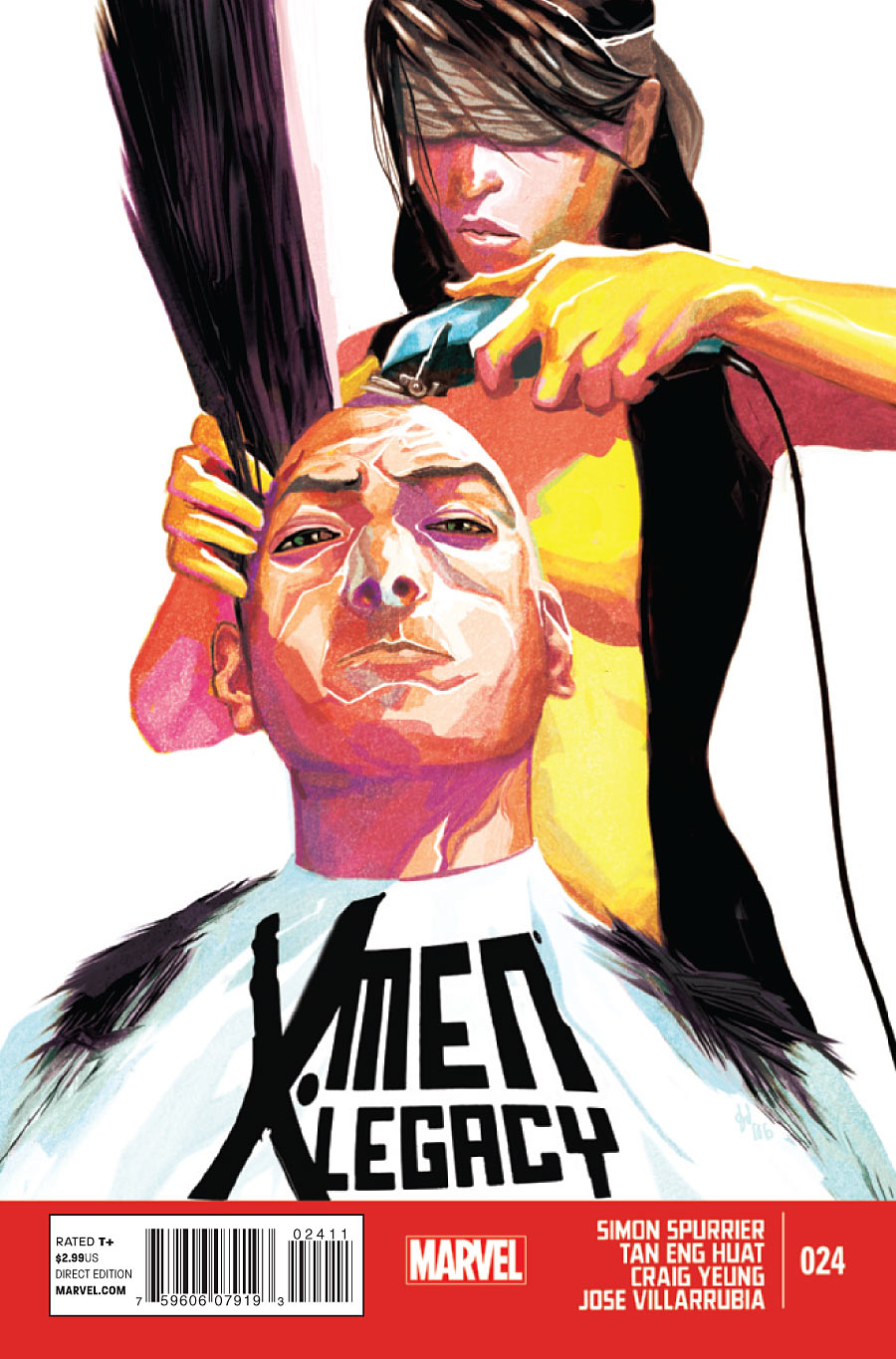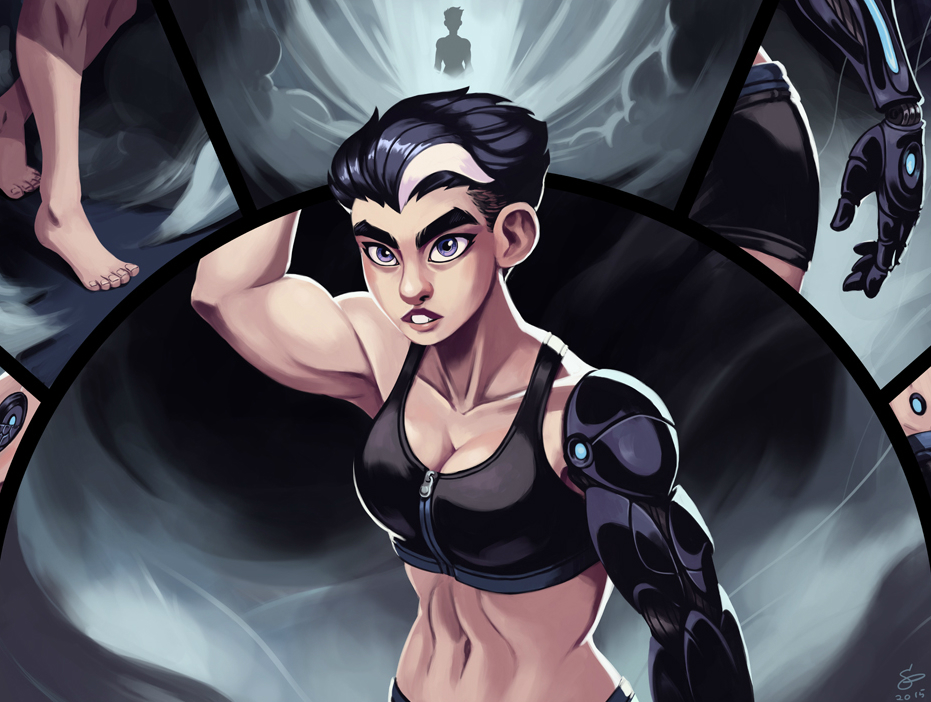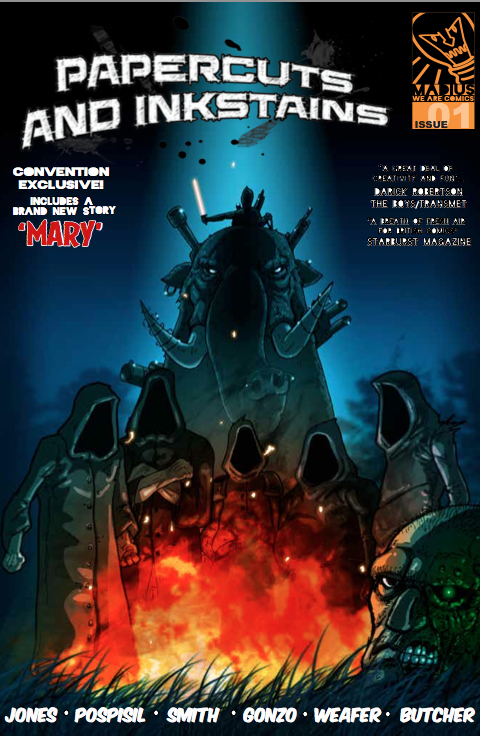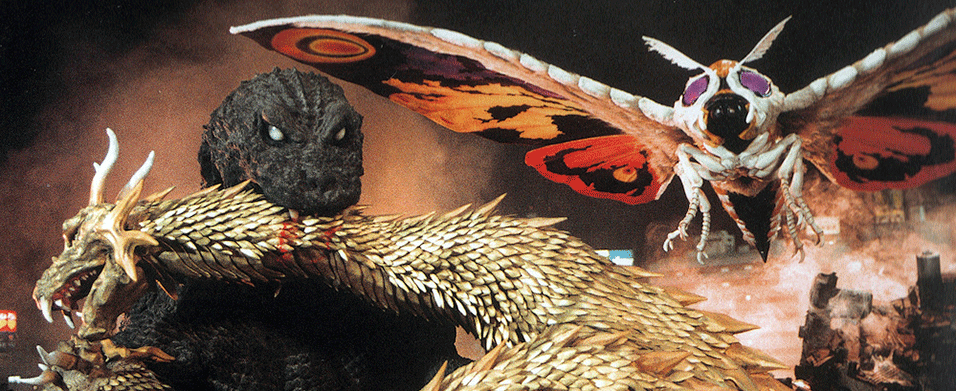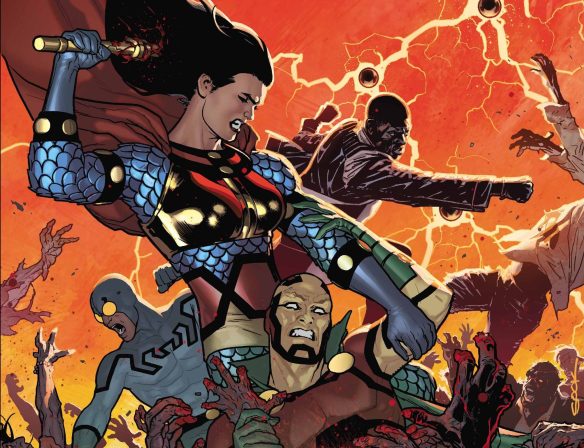The Dark Knight Rises: Why It Isn’t The Film We Deserved, and How It Could Have Been The Film We Needed
**This article was written by Joey Braccino and originally appeared on his blog on July 31, 2012. For Talking Comics’ own reviews of The Dark Knight Rises, click here, here, and here!!!**

Full disclosure: I’m a Marvel fan through and through, and I’m not ashamed to say that some part of me wanted The Avengers to blow The Dark Knight Rises out of the park in terms of critical acclaim and financial success. But I wanted Joss Whedon’s feature film foray into my favorite four-color comics universe to earn that preference. After seeing The Avengers (five times), I could not wait to see The Dark Knight Rises and see how it would compare. I had hoped that the competition, the expectations, the intrigue would build to a cathartic clash on the cinema screens. I had hoped that Nolan and Company would put together something truly epic, if only to match Marvel’s flagship film. I had hoped for many things, all of which were motivated by this implicit desire for The Dark Knight Rises to be so damn good that fanboys and fangirls would come to fisticuffs debating over which film was better.
I wanted it to be great. Most people point to Batman Begins as the turning point for caped characters on the big screen. Nolan’s first two films were lauded as the start of one of the greatest filmic threesomes in all of cinematic history. The third entry, hyped up and saddled with high expectations, needed to be the film fans both needed and deserved.
The Dark Knight Rises, unfortunately, is neither.
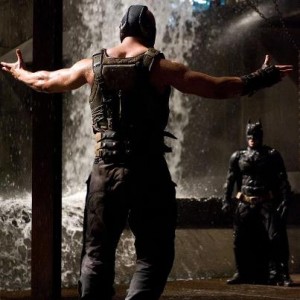
A movie with plot holes, rough editing, and murky characterization is still a movie with plot holes, rough editing, and murky characterization, even if it has the names “Christopher Nolan” or “Batman” attached. Compound those issues with its unmerited, unbearable run-time, and you’ve got one heck of a bummer of a flick. I think we all believe that Mr. Nolan has free reign over his movies at Warner Brothers, and that freedom recently produced the well-received Inception. That film, despite its flaws, fascinated audiences with its style, deep questions, and action. So what happened with TDKR?
Maybe Nolan’s heart wasn’t in it. Some terrible, terrible things happened after The Dark Knight, and there were rumors back in 2008 that Nolan and Company weren’t interested in finishing out the supposed threequel. When watching the first hour of TDKR, I was shocked by the sloppy editing and haphazard exposition. Too many new characters are introduced over the course of the film with no actual emotional or practical pay-off. It all just seemed lazy. Unnecessary even. This is probably all just barely-there, somewhat unfair conjecture, but I wonder if the same innovative, ambitious fervor that pushed Nolan and Co.’s work on The Dark Knight was simply not there during this production…
But again, let’s keep this grounded in the film itself (BEWARE: Spoilers Ahead):
Over the course of The Dark Knight Rises, the audience is promised scope, spectacle, and stakes on a grand scale. There are hints at the epic: the plot takes place over the course of an entire year, Batman is confronted by a physical force like no other, there’s a nuclear freaking fusion freaking reactor set to go off in Gotham City. The audience is teased with high stakes and deep thoughts: class warfare, reluctant heroism, the price of arrogance, sacrifice, orphans, etc. etc. etc. There is some spectacle, but most of it comes from the new Bat-plane and the football stadium scene from the trailer, and none of it matches the stunt work from The Dark Knight (nor the other superhero films released this summer).
That’s the problem with The Dark Knight Rises—it’s not just a question of expectations; the film itself promises all of these things over the course of its three hours, and it neither capitalizes nor carries through on any of them. The Class Warfare idea (ballyhooed by everyone in advance of the film) never amounts to anything other than an attack on a stock exchange and a terrifying speech on the steps of a prison. The sacrifice element (“You’ve given this city everything!” “No, not everything… Not yet…”) is meant to be dramatic, but the resolution of that plot thread is contrived and at odds with the escalation of the film (Lolz, jk about the auto-pilot LOLZ!). The reluctant heroism thing is suggested by Selina Kyle and John Blake’s character arc, but the process by which they come to their ultimate heroic position is devoid of actual conflict.

These promises weren’t only established in this film, but rather over the course of the entire trilogy. I’m not going to get into comics continuity here, because Nolan’s Batman has already strayed from the source material, but the film violates the series’ own established character motivations and arcs.
Batman Begins was about defining the legend. Bruce Wayne needed to accept his parent’s murder and use it to give his life meaning. With his fear and rage contained, Bruce could become the Batman and bring justice to an unjust society. He took up his quest, and in doing so he gave Gotham a legend to believe in. In the context of this meaning-making metaphor, Bruce Wayne’s quest for a father-figure (Ra’s Al Ghul, Alfred, Lucius, etc.) after his own father’s death takes on deeper meaning.
The Dark Knight was about finding meaning in that legend when all other meaning is threatened. The Joker’s chaotic machinations challenged everything Batman had tried to build in the first film. Can good triumph over something that is neither good nor evil? Can there be justice in not only an unjust world, but a meaningless one? While the necessity of Harvey Dent’s inclusion in The Dark Knight can be debated, he did serve the purpose of showing what happens when someone stops believing in the legend of the Batman—when someone stops believing that good is possible. The oft-stated theme of The Dark Knight is escalation (which isn’t really a theme). This fits perfectly into this arc of interpreting the legend of the Batman; “Why So Serious?” isn’t just a frightening catch phrase, it’s a deeper question poking holes into the human need to believe in something.
The Dark Knight Rises is about… what? If I had to define its theme, I would probably say that its about fulfilling the promises that we make. Talia Al Ghul and Bane are working to fulfill Ra’s Al Ghul’s mission to destroy Gotham. Batman should be working to fulfill his promise to bring justice to Gotham once and for all, but ultimately this thematic arc is lost in a murky mess of personal vendettas, egocentrism, romance, and vague questions about heroism.
In the context of the film, Gotham has been crime-free for almost 8 years. It’s as though Gotham has achieved its most peaceful state, but that peace is founded on a lie (re: The Harvey Dent Act and the events of the previous film). There are some interesting moral ramifications embedded in this set-up—a certain dissonance in perceived fairness versus actual inequity that could have been explored further—but they are ultimately ignored to get Bruce Wayne back into fighting shape in order to get pummeled by Bane. (He then spends Act II/III getting back into fighting shape again in order to get pummeled by Bane. Again)

The movie lacks the through-line that the first two films had. The entire trilogy has hinted at a greater question about legends and why we look to them for meaning. Superheroes are our modern mythology for a reason; we see ourselves in these characters, and we see our own flaws and potential in the power fantasies painted on the pulp. The Dark Knight Rises needed to continue the trend of the first two films:
1) Define The Legend
2) Challenge The Legend
3) Spread The Legend
The Dark Knight Rises needed to take everything that Batman represents—justice, perseverance, selflessness, the perfection of the human being—and give it to the people. The Dark Knight Rises should not have featured the rise of Bruce Wayne as Batman (twice). We’ve seen that already. We needed to see the people of Gotham fight against the forces of evil by embodying the legend of the Batman.
And the film comes frustratingly close to this message. When Bane breaks the Batman, Gotham is left without the man that had served as its legendary protector. Bane then cuts Gotham off from the rest of the world and promises freedom from law, from societal rules, and from economic oppression. And then the people of Gotham live trapped within the city’s border for 6 months. They do not question Bane because of the threat of nuclear decimation. They cannot fight back because the forces of law and order are trapped beneath the streets. The people of Gotham experience an anarchy that even The Joker could not accomplish; they are truly in a world without good or evil, justice or injustice, and, ultimately, meaning itself.
To lend drama to this world, Bane promises that an anonymous trigger man is living among the people. In reality, the bomb will go off in 6 months time whether the trigger is pushed or not. The people do not know this, so the audience is supposed to believe that this threat alone prevents the people of Gotham from rising up against Bane.
And then we cut back to Bruce Wayne’s struggles while the travails of the Gothamites (and the 3,000 police officers eating and pooping underground) are relegated to quick-cut montages and a blotchy television screen in the Lazarus Pit.
Look, I’m not a Hollywood scriptwriter, and I’m definitely not Christopher Nolan, but this is where the film flew off the rails and became a conventional Tights-And-Explosions action tent-pole. It went back to Bruce Wayne when it should have stayed with John Blake, Jim Gordon, the orphans, and the everyday people of Gotham.
Like the “No Man’s Land” comics storyline that influenced The Dark Knight Rises,we needed to see the criminals of Gotham cutting up the streets into territories. We needed to see people sacrifice their commodities for survival necessities. We needed to see people trading batteries and canned foods to survive. We needed to see everyone in the city—from the Wayne Enterprises board members and to the wee orphans—forced down to the same thread-bare level. We needed to see John Blake and Jim Gordon become the everyman warriors for justice. We needed to see them become heroes. We needed to see the people realize that life under the chaotic, repressive rule of Bane and the Mercenaries was a fate worse than death, even if that death came from nuclear devastation. We needed to see them rally together and take the fight to Bane.
We needed to see the people of Gotham rise up and declare, “We Are Not Afraid; We Are Justice.”
Of course, we also needed to see Bane defeat them resoundingly. He needed to declare, “There is no trigger. You were always going to die. There is no hope left. This is all for naught.”
And only then can Batman return. And the people have the tangible symbol to fulfill the metaphor they have survived on for 6 months. Bruce Wayne’s struggle in the Lazarus Pit—the acceptance of the fear of death—needed to be paralleled in the struggles of Gotham.
The people defeat Bane and they see Batman sacrifice himself to remove the bomb from the city limits. But even though Batman-the-person is gone, his legend and everything that he stood for has been engrained into the everyday people of Gotham. And they realize that they are all capable of bringing justice to their unjust world as long as they rise up against evil as one.

Nolan and Company have said that The Dark Knight Rises is heavily influenced by A Tale of Two Cities. But we do not get to know the Charles Darnays, Jerry Crunchers, the seamstresses and doctors and Defarges of Gotham. We do not see the horrors of the streets. We do not see the people for whom Carton sacrifices himself. We do not see the desperation. And without it, we do not see the heroism. Instead, we spend all of our time watching the same story beats from the first two movies.
The Dark Knight Rises is not without its high points. It is still a summer action tent-pole, so it features some thrilling sequences here and there. Tom Hardy is physically terrifying as Bane. His voice, however, is a more divisive matter. I personally had difficulty stifling my laughter every time he spoke, and I felt terrible for wanting to laugh so badly. Nevertheless, I will say that his speech in front of the prison is one of the most engaging moments of the entire film. Anne Hathaway is serviceable as Catwoman, but you’ll notice that I did not include her in my “How The Movie Could Have Succeeded” section. Her relevance to the plot is superficial at best, and the fact that Batman trusts her so readily is absurd (regardless of how attractive she may be or how pointy her knife-heels are). Michael Caine cries on cue and lends the film some emotional weight, but he is also the source of pages and pages of exposition early on in the film. Christian Bale reclaims the focus of this film after having to give most of the spotlight to Heath Ledger’s Joker in The Dark Knight. He carries the film almost entirely on his shoulders, which is impressive, but shouldn’t have been necessary. And, as expected, Hans Zimmer’s score is staggeringly visceral.
Still, we deserved more than just some solid acting and some gutwrenching music. We deserved a legend. We deserved spectacle and scope. We deserved something other than a simple “One Man Must Save Us” story, because we get too much of that in conventional superheroics. Instead, we got heavy-handed references to previous events in the series that are designed to neatly knit all three films together. That’s not closure. That’s continuity. Too easy, too conservative, too out-of-character for a director that many consider to be one of the most innovative in the industry today.
I wanted it to be great. Some may say that my expectations were too high. Perhaps they are right, but when one of the most successful characters of all time is featured in the final chapter of one of the most critically acclaimed film series of all time, written and directed by one of the most lauded directors of the last decade, how low should I set my expectations?
[youtube=http://www.youtube.com/watch?v=7gFwvozMHR4&list=PLC3D012FFD3BE3DD4&index=1&feature=plpp_video]
The Dark Knight Rises, directed by Christopher Nolan, written by Christopher & John Nolan, starring Christian Bale, Tom Hardy, Michael Caine, Morgan Freeman, Anne Hathaway, and Marion Cotillard. It opened on July 20th, 2012.


